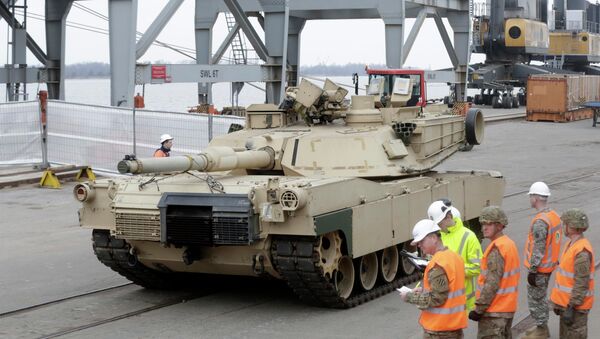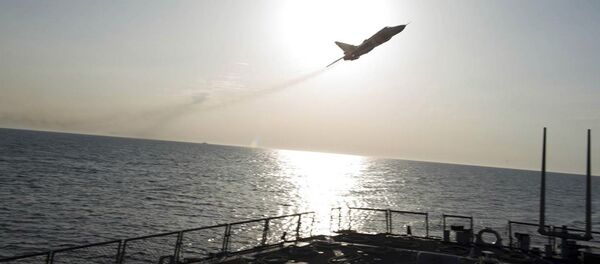The decision to deploy combat battalions in the Baltic countries and Poland is part of NATO’s current military buildup along the border with Russia.
Lithuania and Latvia are busily ramping up their armories trying to bring their defense outlays in line with NATO’s standard of 2 percent of the GDP.
Late last month Lithuania’s Defense Minister Juozas Olekas signed a deal with the German concern ARTEC and the Organization for Joint Armament Cooperation to buy 386 million euros’ worth of Boxer armored cars.
During their recent summit in Warsaw, NATO leaders approved the deployment of four multinational battalions to the Baltic States and Poland.
The Baltic countries regularly host NATO war games.
Conducted annually since 2010, the Saber Strike exercise is a set of collaborative military training drills involving US and European forces that is held in multiple locations throughout Lithuania, Estonia, and Latvia.
On Friday Latvian, Estonian and Polish representatives headed to the Czech Republic to take part in NATO’s Ample Strike 2016 drills.
Slated to run until September 20, the exercises also involve military units from the US, Canada, Britain, France, Germany, Belgium, the Netherlands, the Czech Republic, Greece, Croatia, Slovenia, Hungary and Finland.
During a recent visit to Riga, US Vice President Joe Biden said that 170 military exercises and other joint events were scheduled for this year alone.
In August, Brigadier General Michael Gschossmann, commander of the ground-based component of the German Air Force, said that the German and Dutch militaries were working to create a joint air and missile defense task force – equipped with Patriot rockets – that will likely see future deployments in Poland or the Baltic states “to send a political signal” to Russia.
It was against the backdrop of this frenzied military activity that the Lithuanian and Latvian defense ministries complained about the recent snap military drills in Russia which they described as a destabilizing factor and “a lack of transparency” on the part of Moscow.
Latvian Foreign Minister Edgars Rinkēvičs went even further describing the “large-scale Russian military exercises” as “muscle flexing” and insisted on NATO’s permanent military presence in his country.
But with all this NATO military buildup on its borders, Russia has every reason to create a credible deterrence against a possible aggression.



